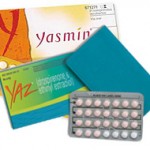
According to the report, the medicine is called Factor VIII concentrate. It effectively provides the missing ingredient without which hemophiliacs’ blood can’t clot. It was made using pools of plasma from 10,000 or more donors.
In the early days of the AIDS epidemic, there was no screening for the disease. As a result, AIDS was passed on to thousands of hemophiliacs in the United States, many of whom died.
A Bayer unit called Cutter Biological introduced a safer version of the medicine in late 1984. But for over a year, according to the New York Times, the company continued to sell the old medicine overseas.
The New York Times states: “By continuing to sell the old version of the life-saving medicine, the records show, Cutter officials were trying to avoid being stuck with large stores of a product that was proving increasingly unmarketable in the United States and Europe.”
That wasn’t the last time Bayer has been accused of endangering human life in order to make a profit.
A number of studies indicate that Bayer’s birth control pills containing the artificial hormone drospirenone increase the risk of potentially deadly blood clots up to three times compared to other oral contraceptives on the market. Pills with drospirenone include Yasmin, Yaz, Beyaz and Ocella.
Plaintiffs in thousands of lawsuits against Bayer claim the company actively concealed that risk from users.
In the case of Factor VIII, the company not only continued to sell medicine overseas, but continued to manufacture it after taking it off the U.S. market. The New York Times cites an internal document indicating that Cutter had several fixed-price contracts, and company officials believed that the old product would be cheaper to produce.
A number of factors make it virtually impossible to estimate the human toll of Bayer’s actions. But in Hong Kong and Taiwan alone, the New York Times reports, more than 100 hemophiliacs got H.I.V. after using Cutter’s old medicine and many have since died. Cutter also continued to sell the older product in Malaysia, Singapore, Indonesia, Japan and Argentina.
Patients should consult their doctors before making any changes in their medication. A consultation with a Beyaz lawyer is also important if there are significant injuries.
See the story here:
